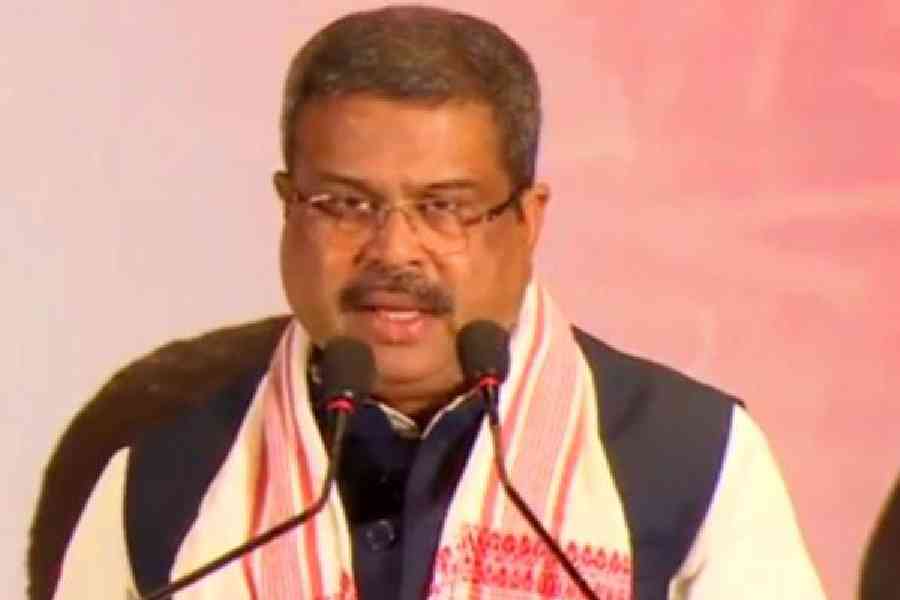Union education minister Dharmendra Pradhan on Sunday said he did not understand why the Mamata Banerjee government opposed the draft regulation that grants chancellors of universities — the governor in the case of state universities — full authority to appoint vice-chancellors, based on recommendations from search-cum-selection committees.
"I do not understand the reason for their objection,” said Pradhan at a news conference in Calcutta.
The draft of the UGC (minimum qualifications for appointment and promotion of teachers and academic staff in universities and colleges and measures for the maintenance of standards in higher education) Regulations, 2025 proposes that chancellors or visitors of state universities would form a three-member search-and-selection committee to appoint vice-chancellors, who might not necessarily have an academic background.
Additionally, the guidelines introduce skill-based courses and micro-credentials in higher education institutions and encourage the use of Indian languages in academic publications and degree programmes.
“Whenever the UGC’s authority has been challenged in court, the judiciary has consistently upheld its supremacy in maintaining educational standards and quality. While governments may have political agendas, the Supreme Court remains impartial,” said Pradhan.
“Regarding the ongoing dispute over the appointment of vice-chancellors, the Supreme Court has explicitly directed the UGC to establish a uniform standard that must be followed,” the education minister added.
Earlier, the UGC had asked the states to send their feedback by February 5, but several non-BJP-ruled states — Bengal, Himachal Pradesh, Jharkhand, Kerala, Tamil Nadu, Telangana and Karnataka — urged the BJP-led Centre to withdraw the new draft regulations.
These states also accused the Centre of trying to push its agenda and ideology, undermining federal principles.
State education minister Bratya Basu had said that the draft was “undemocratic and highly disrespectful” towards federalism.
Basu had also alleged that the BJP government at the Centre was trying to undermine the rights of the states.
Speaking on the draft regulation, which aligns with the National Education Policy, Pradhan emphasised the need for multidisciplinary education, blended pedagogy, technology integration, and strong industry-academic linkages to meet global standards.
“Education is under the concurrent list (meaning both the central government and state governments can legislate on education matters), but the standard of higher education is determined by the central government. The quality of both academic content and institutions is overseen by the UGC, which operates independently of both state and central authorities,” Pradhan added.











